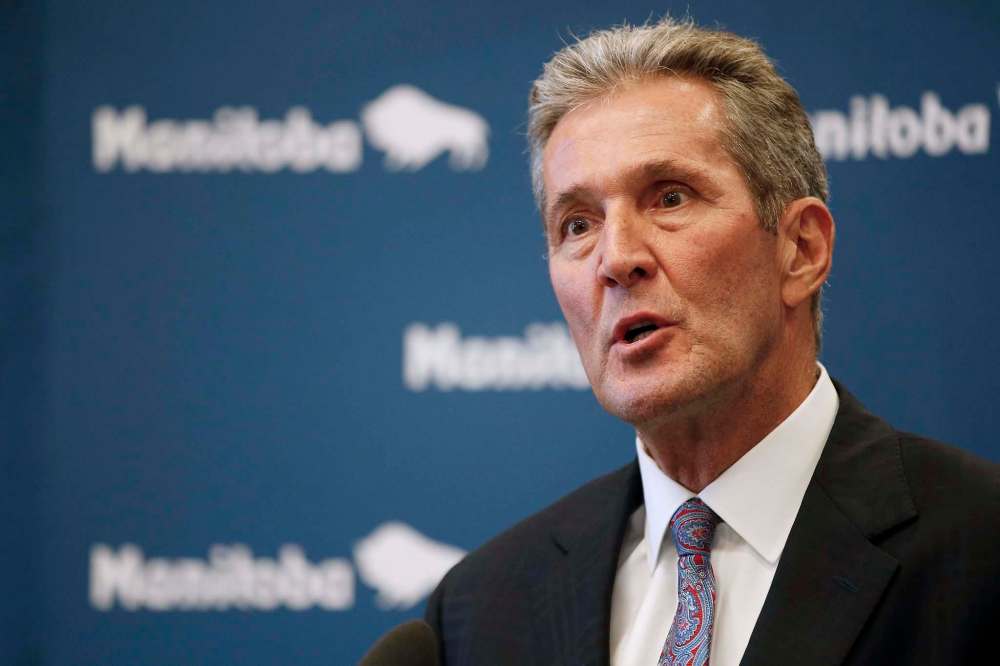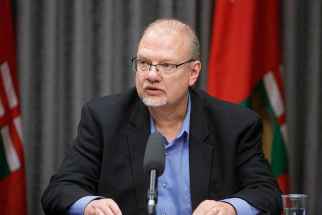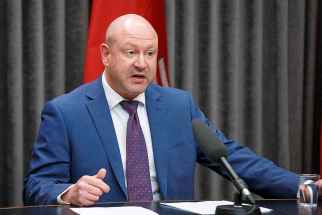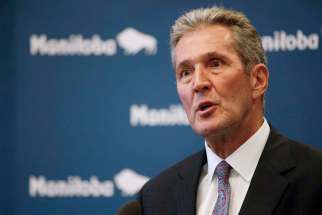Breakfast remarks reveal lack of understanding
Read this article for free:
or
Already have an account? Log in here »
To continue reading, please subscribe:
Monthly Digital Subscription
$0 for the first 4 weeks*
- Enjoy unlimited reading on winnipegfreepress.com
- Read the E-Edition, our digital replica newspaper
- Access News Break, our award-winning app
- Play interactive puzzles
*No charge for 4 weeks then price increases to the regular rate of $19.00 plus GST every four weeks. Offer available to new and qualified returning subscribers only. Cancel any time.
Monthly Digital Subscription
$4.75/week*
- Enjoy unlimited reading on winnipegfreepress.com
- Read the E-Edition, our digital replica newspaper
- Access News Break, our award-winning app
- Play interactive puzzles
*Billed as $19 plus GST every four weeks. Cancel any time.
To continue reading, please subscribe:
Add Free Press access to your Brandon Sun subscription for only an additional
$1 for the first 4 weeks*
*Your next subscription payment will increase by $1.00 and you will be charged $16.99 plus GST for four weeks. After four weeks, your payment will increase to $23.99 plus GST every four weeks.
Read unlimited articles for free today:
or
Already have an account? Log in here »
Hey there, time traveller!
This article was published 13/03/2020 (2102 days ago), so information in it may no longer be current.
Premier Brian Pallister needs to go back to school — if not for a nutritious meal, then perhaps to get an education on the realities of living with poverty.

The premier touched off a firestorm last week when he rejected calls from the Opposition NDP and the Manitoba Teachers’ Society for a free, universal school breakfast program for Manitoba students.
“If children are going to school hungry, then parents aren’t fulfilling their responsibilities,” the premier declared. “Families first, Madam Speaker — not state-funded cafeteria meals.”
In placing the blame on impoverished parents, Mr. Pallister is playing politics with hungry kids. He warned that feeding kids at school would have the “unintended consequence” of depriving children of family time at the table.
The premier’s remarks are at best illogical, and at worst cruel. They suggest a lack of understanding and compassion from a man who has claimed poverty is the No. 1 issue in Manitoba, and yet today finds himself the leader of the province with the highest rate of child poverty in Canada, at 27.9 per cent.
Mr. Pallister should know better than to suggest parents mired in poverty can prevent their children from going hungry simply by buckling down and hoisting themselves up by their bootstraps.
Mr. Pallister should know better than to suggest parents mired in poverty can prevent their children from going hungry simply by buckling down and hoisting themselves up by their bootstraps. The circumstances of poverty can make it impossible for even the most caring parents to ensure their kids arrive at school with full stomachs.
Studies have shown that feeding children in school improves the health and overall performance of students, along with easing the burden on hard-pressed families and making it easier for kids and parents to spend time together. School is the main place where a society can affect the lives of children in need.
The sad reality is Canada and Manitoba have earned failing grades when it comes to combating hunger in schools. Canada is the only member of the G7 group of countries that does not have a national program to ensure all students from kindergarten to Grade 12 have access to healthy food in school.
A 2017 UNICEF report rated Canada 37th out of 41 high-income countries on providing access to nutritious food for children. It called for the creation of a national school-food program, because kids can’t learn on empty stomachs.
In Manitoba, teachers often dig into their own pockets to buy food for hungry students. Some schools are lucky enough to have wealthy benefactors who subsidize school breakfasts, lunches and snacks.
The non-profit Child Nutrition Council of Manitoba is forced to hold fundraisers — such as the Stone Soup culinary contest earlier this week — to help feed kids. In 2018-19, the council provided just over $1 million to 271 Manitoba school nutrition programs, serving more than 4.8 million meals and snacks to 30,500 students.
Those teachers and philanthropists and charities deserve our admiration, but the fact they are required to foot the bill to feed hungry students is nothing less than a disgrace.
Currently, Canada has a patchwork of programs serving only a fraction of students. In its March 2019 budget, the federal government promised to “work with provinces and territories toward the creation of a national school food program.” To date, little progress has been made.
The bottom line is this: children are hungry right now and, unlike Mr. Pallister, can’t wait for some magical transformation that will suddenly bless poor parents with the ability to feed their kids.
The provincial and federal governments need to agree on a plan to feed hungry kids in schools. That’s a lesson that any politician with a full stomach should be able to understand.














